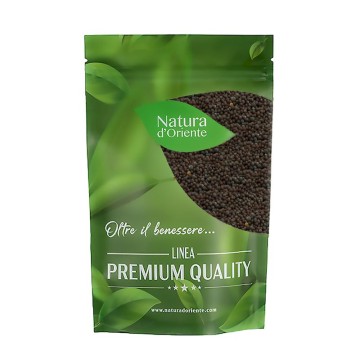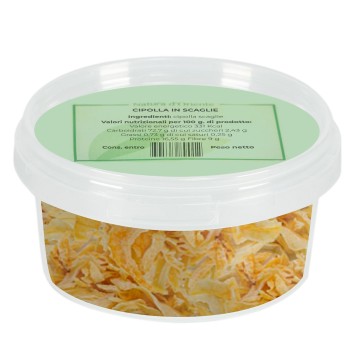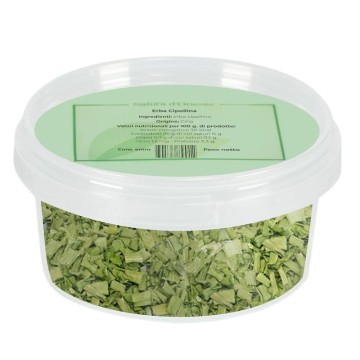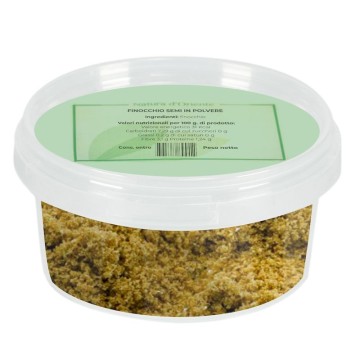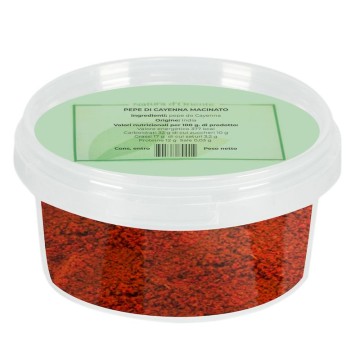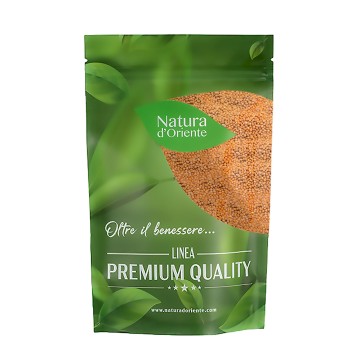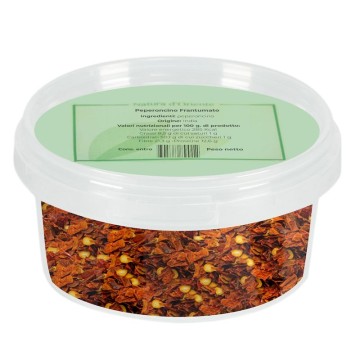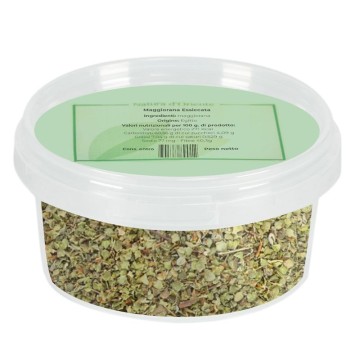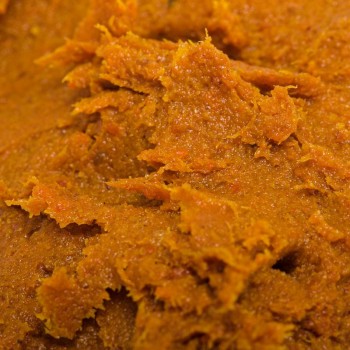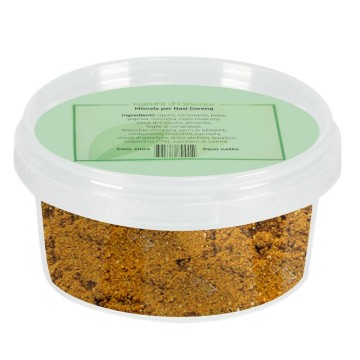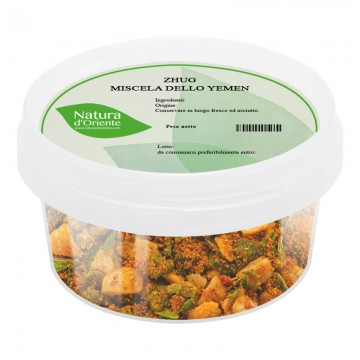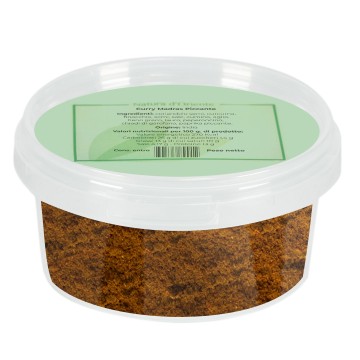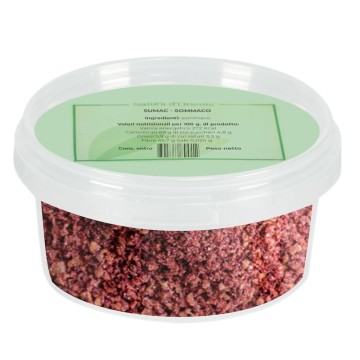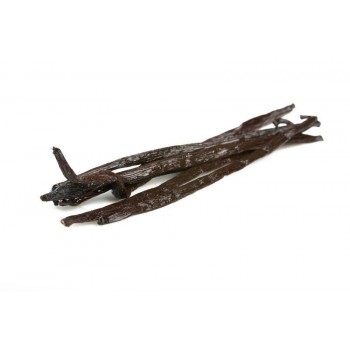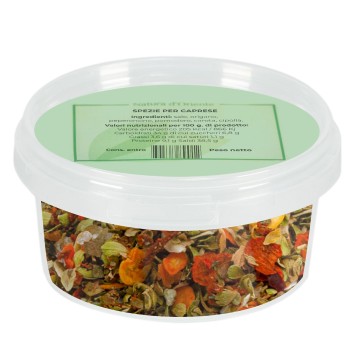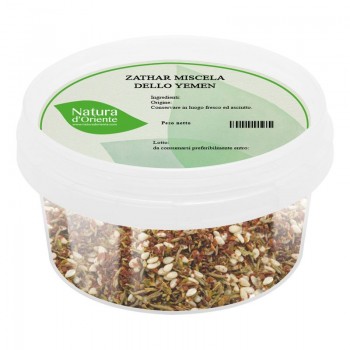The value of this preparation is important for convenience in the kitchen or as a supplement. The powder comes from the transformation of lemon juice, which is concentrated. The properties of the juice remain unchanged in the reduction to powder, both as nutrients and as nuances of flavor to add to recipes.
Lemon powder gives off an attractive scent, and can be added to cakes, biscuits, sauces, icings; or consumed as a natural supplement for its nutritional benefits. Lemon Powder: properties and benefits When talking about lemon, we must mention the so-called "acid power". The citric acid content and its low pH (2 or 3), make lemon valuable from many points of view. In addition to the food taste, in fact, this fruit has been used for centuries for its antiseptic properties, for digestion and to help against irritation. Lemon juice concentrate in powder form has high levels of citric acid, as well as being rich in vitamins and various mineral salts (calcium, phosphorus, iron). Some possible health benefits of lemon powder include the fact that it becomes a source of vitamin C and other natural compounds, which can support a healthy immune system response.
Lemon powder also contains vitamins B1 and B2. The citric acid in lemon powder can be helpful for digestive health, and has been used for centuries in folk medicine to relieve constipation and indigestion. Drinking warm water with lemon juice or powder works quickly and more gently. Lemon's characteristics can also help with colon health thanks to pectin.
It can help with hydration: if added to water, it can make it pleasant with its added flavor, replenishing electrolytes and minerals. It is a natural breath freshener and helps with oral cleansing. We know that lemon is an excellent source of vitamin C (ascorbic acid), a nutrient that is excellent as an antioxidant that protects against free radical damage. It also supports blood pressure and brain health. Additionally, vitamin C is known to improve skin health.
In addition, the vitamin C in lemon powder can support a healthy immune system response. For those looking to lose weight, lemon powder can be a resource due to its content of polyphenol compounds that facilitate (eriocitrin, hesperidin, naringin, etc.) In the kitchen, lemon juice powder retains the natural nutrients and slightly bitter aroma of the fruit. The powder has the advantage of being less acidic than pure lemon juice, and maintains the pH balance in more structured recipes.
For those looking for a versatile ingredient, lemon powder can be used in traditional Ayurvedic cosmetics, adding it to shampoo or conditioner to make hair shinier and softer. In addition, lemon powder can act as a skin scrub, added to warm water and olive oil, to obtain a creamy paste to apply on the face or body for about 10 minutes, before rinsing. It provides toning and astringent effects to the skin, also useful for fighting acne and skin blemishes.
It provides toning and astringent effects to the skin, also useful for fighting acne and skin blemishes.
Origins and History of Cultivation
The origin of the lemon plant has not yet been determined by scientists, but one theory suggests that it comes from the Indian territory of Assam, where it has been cultivated for over 2,500 years. According to other scholars, the lemon probably originated in the Far East between China and Burma.
Chinese evidence dates back to around 500 BC, and we know that from the East the lemon and its fruit were brought by Arab traders to Africa and the Middle East after 100 BC. It seems that lemons arrived in Italy at the time of the Romans around 200 AD, and from there they spread to Mesopotamia and Egypt. Initially, the plant was not appreciated for its fruit, but as an ornamental plant for gardens. The scents and colors were pleasant, and until around the 10th century, lemons were little considered in the kitchen.
Everything changed in the 11th century, when the Arabs brought the lemon plant to Spain and, from then on, it was cultivated throughout the Mediterranean and in the Holy Land in Palestine. From there, the Crusaders brought it throughout Europe, where the lemon fruit began to be used frequently in cooking around the 15th century. It was in the Middle Ages that the word limone first appeared in Italy, from the Arabic laymun or limun, in turn taken from the Persian word limu. The first large plantations were located in Genoa, and Christopher Columbus, who perhaps knew the fruit well,
The value of this preparation is important for convenience in the kitchen or as a supplement. The powder comes from the transformation of lemon juice, which is concentrated. The properties of the juice remain unchanged in the reduction to powder, both as nutrients and as nuances of flavor to add to recipes.
Lemon powder gives off an attractive scent, and can be added to cakes, biscuits, sauces, icings; or consumed as a natural supplement for its nutritional benefits. Lemon Powder: properties and benefits When talking about lemon, we must mention the so-called "acid power". The citric acid content and its low pH (2 or 3), make lemon valuable from many points of view. In addition to the food taste, in fact, this fruit has been used for centuries for its antiseptic properties, for digestion and to help against irritation. Lemon juice concentrate in powder form has high levels of citric acid, as well as being rich in vitamins and various mineral salts (calcium, phosphorus, iron). Some possible health benefits of lemon powder include the fact that it becomes a source of vitamin C and other natural compounds, which can support a healthy immune system response.
Lemon powder also contains vitamins B1 and B2. The citric acid in lemon powder can be helpful for digestive health, and has been used for centuries in folk medicine to relieve constipation and indigestion. Drinking warm water with lemon juice or powder works quickly and more gently. Lemon's characteristics can also help with colon health thanks to pectin.
It can help with hydration: if added to water, it can make it pleasant with its added flavor, replenishing electrolytes and minerals. It is a natural breath freshener and helps with oral cleansing. We know that lemon is an excellent source of vitamin C (ascorbic acid), a nutrient that is excellent as an antioxidant that protects against free radical damage. It also supports blood pressure and brain health. Additionally, vitamin C is known to improve skin health.
In addition, the vitamin C in lemon powder can support a healthy immune system response. For those looking to lose weight, lemon powder can be a resource due to its content of polyphenol compounds that facilitate (eriocitrin, hesperidin, naringin, etc.) In the kitchen, lemon juice powder retains the natural nutrients and slightly bitter aroma of the fruit. The powder has the advantage of being less acidic than pure lemon juice, and maintains the pH balance in more structured recipes.
For those looking for a versatile ingredient, lemon powder can be used in traditional Ayurvedic cosmetics, adding it to shampoo or conditioner to make hair shinier and softer. In addition, lemon powder can act as a skin scrub, added to warm water and olive oil, to obtain a creamy paste to apply on the face or body for about 10 minutes, before rinsing. It provides toning and astringent effects to the skin, also useful for fighting acne and skin blemishes.
It provides toning and astringent effects to the skin, also useful for fighting acne and skin blemishes.
Origins and History of Cultivation
The origin of the lemon plant has not yet been determined by scientists, but one theory suggests that it comes from the Indian territory of Assam, where it has been cultivated for over 2,500 years. According to other scholars, the lemon probably originated in the Far East between China and Burma.
Chinese evidence dates back to around 500 BC, and we know that from the East the lemon and its fruit were brought by Arab traders to Africa and the Middle East after 100 BC. It seems that lemons arrived in Italy at the time of the Romans around 200 AD, and from there they spread to Mesopotamia and Egypt. Initially, the plant was not appreciated for its fruit, but as an ornamental plant for gardens. The scents and colors were pleasant, and until around the 10th century, lemons were little considered in the kitchen.
Everything changed in the 11th century, when the Arabs brought the lemon plant to Spain and, from then on, it was cultivated throughout the Mediterranean and in the Holy Land in Palestine. From there, the Crusaders brought it throughout Europe, where the lemon fruit began to be used frequently in cooking around the 15th century. It was in the Middle Ages that the word limone first appeared in Italy, from the Arabic laymun or limun, in turn taken from the Persian word limu. The first large plantations were located in Genoa, and Christopher Columbus, who perhaps knew the fruit well,
The value of this preparation is important for convenience in the kitchen or as a supplement. The powder comes from the transformation of lemon juice, which is concentrated. The properties of the juice remain unchanged in the reduction to powder, both as nutrients and as nuances of flavor to add to recipes.
Lemon powder gives off an attractive scent, and can be added to cakes, biscuits, sauces, icings; or consumed as a natural supplement for its nutritional benefits. Lemon Powder: properties and benefits When talking about lemon, we must mention the so-called "acid power". The citric acid content and its low pH (2 or 3), make lemon valuable from many points of view. In addition to the food taste, in fact, this fruit has been used for centuries for its antiseptic properties, for digestion and to help against irritation. Lemon juice concentrate in powder form has high levels of citric acid, as well as being rich in vitamins and various mineral salts (calcium, phosphorus, iron). Some possible health benefits of lemon powder include the fact that it becomes a source of vitamin C and other natural compounds, which can support a healthy immune system response.
Lemon powder also contains vitamins B1 and B2. The citric acid in lemon powder can be helpful for digestive health, and has been used for centuries in folk medicine to relieve constipation and indigestion. Drinking warm water with lemon juice or powder works quickly and more gently. Lemon's characteristics can also help with colon health thanks to pectin.
It can help with hydration: if added to water, it can make it pleasant with its added flavor, replenishing electrolytes and minerals. It is a natural breath freshener and helps with oral cleansing. We know that lemon is an excellent source of vitamin C (ascorbic acid), a nutrient that is excellent as an antioxidant that protects against free radical damage. It also supports blood pressure and brain health. Additionally, vitamin C is known to improve skin health.
In addition, the vitamin C in lemon powder can support a healthy immune system response. For those looking to lose weight, lemon powder can be a resource due to its content of polyphenol compounds that facilitate (eriocitrin, hesperidin, naringin, etc.) In the kitchen, lemon juice powder retains the natural nutrients and slightly bitter aroma of the fruit. The powder has the advantage of being less acidic than pure lemon juice, and maintains the pH balance in more structured recipes.
For those looking for a versatile ingredient, lemon powder can be used in traditional Ayurvedic cosmetics, adding it to shampoo or conditioner to make hair shinier and softer. In addition, lemon powder can act as a skin scrub, added to warm water and olive oil, to obtain a creamy paste to apply on the face or body for about 10 minutes, before rinsing. It provides toning and astringent effects to the skin, also useful for fighting acne and skin blemishes.
It provides toning and astringent effects to the skin, also useful for fighting acne and skin blemishes.
Origins and History of Cultivation
The origin of the lemon plant has not yet been determined by scientists, but one theory suggests that it comes from the Indian territory of Assam, where it has been cultivated for over 2,500 years. According to other scholars, the lemon probably originated in the Far East between China and Burma.
Chinese evidence dates back to around 500 BC, and we know that from the East the lemon and its fruit were brought by Arab traders to Africa and the Middle East after 100 BC. It seems that lemons arrived in Italy at the time of the Romans around 200 AD, and from there they spread to Mesopotamia and Egypt. Initially, the plant was not appreciated for its fruit, but as an ornamental plant for gardens. The scents and colors were pleasant, and until around the 10th century, lemons were little considered in the kitchen.
Everything changed in the 11th century, when the Arabs brought the lemon plant to Spain and, from then on, it was cultivated throughout the Mediterranean and in the Holy Land in Palestine. From there, the Crusaders brought it throughout Europe, where the lemon fruit began to be used frequently in cooking around the 15th century. It was in the Middle Ages that the word limone first appeared in Italy, from the Arabic laymun or limun, in turn taken from the Persian word limu. The first large plantations were located in Genoa, and Christopher Columbus, who perhaps knew the fruit well,1493 brought lemon seeds to the New World, to Hispaniola. In the Americas, until the eighteenth century the main use of the plant was ornamental and for medicine, while in the nineteenth century it began to be used as a flavoring in cooking. Since the post-war period, the reduction of lemon to juice or powder has become very widespread, and versions of frozen lemon concentrate, cold-pressed natural lemon oil, and lemon powder from juice or peel are known on the market.
In folk medicine it has been used as a natural antiseptic, thanks to the power of citric acid, and to aid digestion. The peel was considered for its essential oil, a decongestant for the respiratory tract, and to aid the digestion of food. An important anecdote is linked to the ability of lemon to prevent scurvy among sailors, traveling for months.
In 1747, the Scottish doctor James Lind, responsible for hygiene of the Royal Navy, discovered these properties and integrated it into the sailors' diet on board. Plant and fruit The Lemon plant is Citrus limon, belonging to the botanical family of Rutaceae. It is an evergreen broadleaf plant that is not very tall, which requires slightly acidic soil. It shows young reddish leaves, which ripen turning green and increasingly aromatic. Sometimes, sharp thorns can be found on the twigs of the tree. From the reddish buds emerge very fragrant flowers, white at the top and slightly purple at the bottom. The fruit is very well known, the oval lemon, which shows a color from light yellow to warm yellow, depending on the variety. It is dotted with sebaceous glands, and is widely used in cooking and cosmetics.
The lemon plant prefers tropical and semi-tropical climates for cultivation. Commercial production, in fact, performs best in the subtropical regions of the world. Nutritional values of Lemon Powder The powder contains many of the vitamins, minerals and substances found in fresh lemon. It is rich in nutrients. The nutritional properties of lemon powder show good levels of vitamin C, vitamin B1, vitamin B2, niacin, good levels of citric acid and malic acid. Even in the dehydrated version, lemon makes minerals available such as potassium (excellent quantities), calcium, phosphorus and iron. Other beneficial substances are the phytonutrients of beta-carotene, hesperidin naringin, coumarin.
How to use Lemon Powder in the kitchen
The version of lemon juice in powder form can replace fresh lemon juice in many cooking recipes. Lemon powder can be used to add a tangy lemon flavor to salad dressings and savory dishes such as vegetables and meats, as well as sauces and glazes, dressing mixes. This powder is suitable for providing lemon flavor and taste in the preparation of desserts: cookies, puddings, cakes, cupcakes, sorbets. It is recommended to use it in moderation, since the flavor of the powder is concentrated (usually start with about ½ teaspoon and then adjust the recipes). It can be an addition not only to desserts but also to drinks, iced or hot tea. If you love the taste of lemonade, you can mix the lemon powder with water, for a refreshing effect without artificial additives.
Lemon powder: side effects and contraindications
There are no particular contraindications to taking lemon powder in moderate doses. However, lemon powder contains sugars, not recommended for those with high blood glucose levels and diabetes. It is not recommended to use excessive doses to avoid damaging the tooth enamel through citric acid, or irritating the oral mucosa.

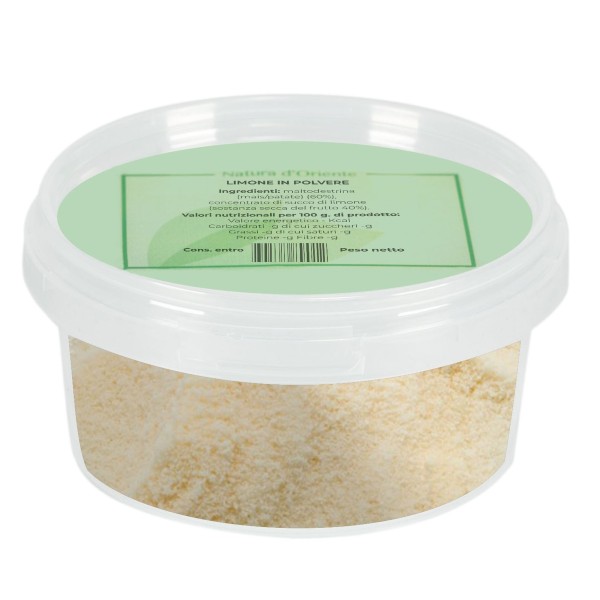









 No reward points for this product.
No reward points for this product.
